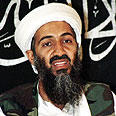
Analysts: Al-Qaeda awash in funds despite meltdown
When the international community decided to impose banking sanctions on terror groups, little did anyone know it would result in an unfortunate paradox - with the world's banks in crisis, experts say, al-Qaeda is the big winner
The meltdown in the global financial system may spare al-Qaeda. Buoyed by years of record oil revenues in the Gulf and Afghanistan's booming drug trade, al-Qaeda and other Islamic terrorist groups are thought to have access to strong potential funding sources - and thus might dodge fallout from the global crunch devastating others.
Yet all is not lost in the effort to rein in money for terror groups. One principal reason the groups may avoid fallout now is because they've been forced to pull away from banks, relying instead on less-efficient ways to move money.
Those methods - including hand-carrying money and using informal money-transfer networks called hawalas - likely will shield extremists from the current banking system turmoil.
But the methods also are slower and less efficient ways to move money - and thus could hamper efforts to finance attacks, analysts say.
"It would be inconceivable that large amounts of (terror-linked) money would transit through the formal financial system, because of all the controls," said Ibrahim Warde, an expert on terrorist financing at The Fletcher School at Tufts University.
The question of where al-Qaeda and sympathizers get their money has long been crucial to efforts to prevent terror attacks. A 2004 US Investigation found that banks in the United Arab Emirates had unwittingly handled most of the $400,000 spent on the September 11 attack.
After the attacks, the US made an aggressive push to use law enforcement techniques to disrupt terrorist financing networks and worked with allies to improve their own financial and regulatory institutions.
Despite those efforts, wealthy donors and Islamic charities in the oil-rich Gulf, especially in Saudi Arabia ,continue to be "one of the most significant sources of illicit financing for terrorism," said Matthew Levitt, a former US Treasury Department terrorism expert now with The Washington Institute for Near East Policy.
The Saudis have long insisted they are doing all they can to rein in terror financing, and US officials have praised their efforts. But, under a system known as zakat, wealthy Muslims are required to give a portion of their money to the poor. Much of that is given to Islamic charities, and US officials say at least some of the charities money continues to be channeled to al-Qaeda and other terror groups.
Saudi Arabia and other Gulf countries have benefited over the last two years from a surge in oil prices from about $60 per barrel at the beginning of 2007 to more than $145 per barrel in the middle of this year. Oil prices have fallen almost 50% in the last few months in response to the global financial crisis, but not before the run-up generated hundreds of billions of dollars.
Levitt said the covert nature of terrorist financing makes it difficult to determine a direct correlation between rising oil revenues over the last few years and the amount of cash al-Qaeda has on hand. But "it stands to reason that if there is more oil revenue, there will be more revenue for all kinds of things licit and illicit," he said.
Al-Qaeda and the Taliban have also benefited from the drug trade's growth in Afghanistan after the US-led invasion in 2001 - a booming business that likely won't be affected by the global slowdown.
Opium cultivation has fallen slightly this year but is still about 20 times higher than in 2001, according to the UN Office on Drugs and Crime. Former US drug czar Gen. Barry McCaffrey, who now works with NATO, issued a report on Afghanistan in July saying al-Qaeda and the Taliban "are principally funded by what some estimate as $800 million dollars a year derived from the huge $4 billion annual illegal production and export of opium/heroin and cannabis."
Al-Qaeda and other extremist groups have gloated in recent weeks about the West's financial woes, painting the crisis as either divine punishment for supposed wrongs or the last gasps of a dying empire.
Members of the Palestinian Islamist group Hamas and hard-liners in Iran also cheered the economic turmoil. Iran is thought to be the last major government supporter of terror groups. The majority Shiite country is not believed to finance al-Qaeda, a Sunni group, but does support Hizbullah in Lebanon.
Iran denies the financial crisis is hurting its economy, but falling oil prices will cut into its crude sales, which make up 80% of the government budget. It is unclear how that will affect support to Hizbullah.
Despite the apparent glut in potential money for terror groups, Levitt believes anti-terrorism efforts have hampered the groups' ability to transfer money where they want.
Levitt points to several messages from senior al-Qaeda leaders in Pakistan and Afghanistan intercepted by the US or released by the terrorist group itself, asking Gulf supporters for more help because of funding shortfalls. Most recently, the al-Qaeda leader in Afghanistan, Mustafa Abu al-Yazid, appeared in a May 2007 video saying "the mujahideen of the Taliban number in the thousands, but they lack funds."
But Warde and other analysts are not convinced al-Qaeda is really hurting. "Anybody who is involved in fundraising of any sort is never going to say we have enough money, so I think it is a silly argument to say that because there is this intercept… it is proof that everything we've done has succeeded brilliantly," said Warde.










